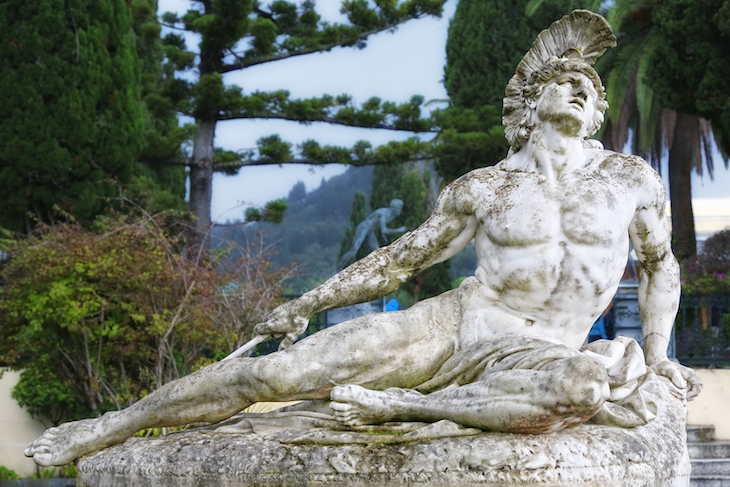A couple of weeks ago a reader (Emma Lyons) queried Taki, the High Life professor of ancient Greek culture and society, who had argued that Achilles and Patroclus, heroes of the Trojan War, were not gay, and implied that Greeks did not do transgenderism. On both counts a little clarification is required.
The 5th-century BC Athenian playwright Aeschylus indeed represented Achilles and Patroclus as lovers, as many ancients did. But professor Taki was talking about the situation in Homer’s Iliad (c. 700 BC), in which they were no such thing. The wrath of Achilles, with which the Iliad opens, was down to Achilles’s loss of his captive woman Briseis, taken from him by the Greek leader Agamemnon. Achilles replaced her in his bed with another captive, Diomede, while Patroclus bedded down in the other corner of their hut with ‘fair-girdled Iphis, whom Achilles had presented to him after he captured Skyros’. QED.
As for transgenderism, the professor merely suggested that modern novelists like Madeline Miller, eager to catch the prevailing winds, might soon be introducing sex-change couples into the story of the Trojan War. Ms Lyons rightly highlighted two myths about sexual deviancy, but these simply reflected a real world rich in such possibilities. While the deranged emperor Elagabalus was a rarity in offering vast sums to any doctor who could kit him out with female sex organs, freakish sex-changing was thought credible in the ancient world. We hear of two examples of Greek girls with tumours of the lower abdomen which burst to reveal a male organ complete with testicles. Doctors tidied it all up, and turned both into healthy males. Worshippers of Cybele had to castrate themselves, and there was plenty of transvestism. Monstra such as hermaphrodites were taken as dire portents and put to death, but fashions changed and Pliny the Elder said they were now seen as good for a laugh.
No scope, then, for a transgender Iliad, but plenty for a rollicking self-castrating, transvestite, freak sex-changing, hermaphroditic one. The Millers of this world will already be sharpening their coloured pencils.






Comments